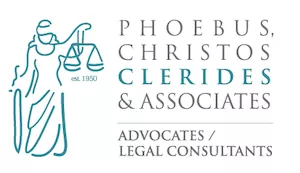- with readers working within the Property industries
- within Law Department Performance, Transport and Finance and Banking topic(s)
Defamation claims can have profound consequences for individuals and businesses, making it essential to understand the legal defenses available. Whether protecting one's reputation or defending against a claim, knowledge of these principles is crucial. At PHOEBUS, CHRISTOS CLERIDES & ASSOCIATES LLC, we provide strategic legal guidance in defamation matters, ensuring that our clients' interests are safeguarded with precision and expertise.
Defenses in Defamation Law
A defamation claim arises when a false statement damages the reputation of an individual or entity. However, not all statements are actionable—several defenses exist that may bar liability.
- Truth (Justification)
The strongest defense against a defamation claim is that the statement is substantially true. The defendant must prove that the core of the statement is accurate, even if some details are incorrect. If the truth defense is established, the claim fails..
- Honest Opinion (Fair Comment)
A statement that is clearly an opinion, rather than a fact, and is based on true underlying material, may be protected under this defense. The opinion must relate to a matter of public interest and must not be malicious..
- Privilege (Absolute and Qualified)
Certain statements are protected from defamation claims due to the need for free expression in certain contexts:
- Absolute privilege applies to statements made in Parliament, judicial proceedings, and other official settings, rendering them immune from defamation claims..
- Qualified privilege protects statements made in good faith on matters where there is a duty or interest in sharing the information, such as employment references or fair reporting of public proceedings. However, malice can defeat this defense..
- Public Interest (Reynolds Privilege & Statutory Protection)
The law recognizes a defense where defamatory statements are published responsibly on matters of public interest. Initially developed under Reynolds v Times Newspapers, this defense requires the publisher to demonstrate responsible journalism, even if the statement is inaccurate..
- Offer of Amends
Defendants may mitigate liability by offering amends—this includes a formal apology, correction, and financial compensation. Courts view early offers favorably, making this an effective way to resolve disputes without costly litigation..
- Innocent Dissemination
Certain third parties, such as internet service providers, booksellers, and libraries, may use this defense if they unknowingly distribute defamatory material without editorial control over the content..
- Consent
A claimant cannot sue for defamation if they consented to the publication of the statement. However, consent must be explicit and unambiguous..
- Statute of Limitations
A strict one-year limitation period applies to defamation claims. If proceedings are not initiated within this timeframe, the claim will generally be barred, reinforcing the importance of swift legal action..
Protecting Your Reputation or Defending Against Claims
Defamation cases require balancing the right to free expression with the right to reputation. At PHOEBUS, CHRISTOS CLERIDES & ASSOCIATES LLC, we have extensive experience handling complex libel and slander cases. We have a deep understanding of defamation law and media litigation, ensuring that our clients receive strategic and effective legal representation in navigating these intricate disputes.
The content of this article is intended to provide a general guide to the subject matter. Specialist advice should be sought about your specific circumstances.


